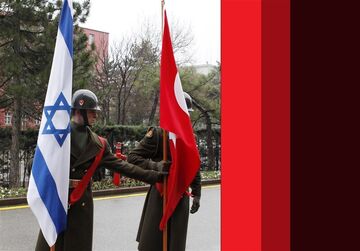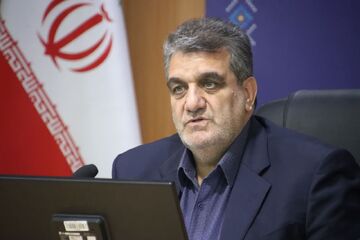TEHRAN (Bazaar) –Nader Entessar, Professor Emeritus of Political Science from university of South Alabama says that Blinken's boss Joe Biden had ample opportunity to repair many, but not all, the damages Trump had inflicted on the JCPOA but he refused to do anything meaningful.
“Biden didn't issue a single executive order to restore even minor parts of the nicer deal that his predecessor had eviscerated,” Entessar told Bazaar News Agency.
Following is the full text of the Bazaar interview with Professor Entessar:
Q: In the midst of the Gaza war, Antony Blinken, the US Secretary of State announced that withdrawing from the JCPOA was a mistake because it had resolved one of the security issues with Iran. What is your assessment of his words at this time?
A: Blinken's words are meaningless at this time. Blinken's boss Joe Biden had ample opportunity to repair many, but not all, the damages Trump had inflicted on the JCPOA but he refused to do anything meaningful. Biden didn't issue a single executive order to restore even minor parts of the nicer deal that his predecessor had eviscerated.
Q: Josep Burrell, the head of foreign policy of the European Union, also announced after the Gaza war, said “The time for negotiations to revive the JCPOA is coming to an end and it is important to resume these negotiations. I understand how important these negotiations are for the region, especially Saudi Arabia.” How do you evaluate his words? Does it mean an attempt to immediately resume negotiations?
A: Burrell utterances, like those of Blinken, ring hollow. Frankly, the JCPOA is already a moot issue. Neither Saudi Arabia nor any other nonsignatory state to the JCPOA deal can play a positive role in rewriting a dead deal.
Q: Burrell also said “Although the countries of the region and Saudi Arabia are not directly at the negotiating table, their concerns will be taken into consideration.” It seems that this is a new issue. Before this, the Arab countries demanded direct participation in the negotiations, which was met with opposition. Has something new happened? Doesn't this make the negotiation process more difficult?
A: It was a mistake for Iran to intertwine its nuclear issues with Tehran's relations with the EU, an entity that had a broad agenda to force West's policies on Iran by using the nuclear angel. The nuclear issue should have remained within the exclusive purview of the Iran-IAEA framework. Iran is a signatory to the NPT and Tehran has signed the Safeguards Agreement with the IAEA. This is how countries deal with questions and concerns that the IAEA has about their nuclear program.
Q: After the Gaza war, the spokesperson of the Iranian Foreign Ministry also said that “The subject of the negotiations is open within the defined framework and within the framework of the Sultan of Oman's initiative. Naturally, the situation and issue of Palestine, which has displaced regional and international priorities, can overshadow some issues or create priority and delay.” What is your assessment of these words?
A: I am confused by the Foreign Ministry spokesman's statements. Frankly, they are as perplexing as what Blinken and Burrell have said. It seems that all sides are rudderless at this point and shooting in the dark with the hope of hitting their targets.
Q: According to the words of the officials of both sides of the JCPOA, is it possible to start negotiations in the next few months?
A: As I stated earlier, the JCPOA track has come to its dead end. One cannot doggedly pursue the same mistaken route and hope for a different result. It is dangerous to build more floors on a building whose foundation is weak and collapsible. As I had mentioned in my previous interviews, the policy of "neither war nor peace" between Tehran and Washington is not sustainable. Under the best conditions, this policy will lead to one failed agreement after another.
















نظر شما